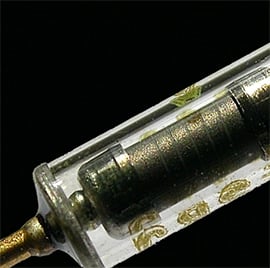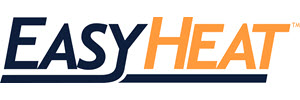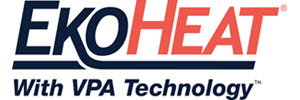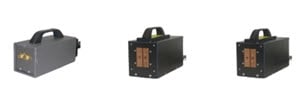Hermetic Sealing with Induction
- Home
- Process Applications
- Metal-to-Glass
How does Metal-to-Glass Sealing with Induction Work?
Hermetic sealing is the process of creating a container that is airtight. It is commonly used to encase electrical mechanisms, as well as to contain functional gases.
Induction generates an electromagnetic field in a work coil that induces currents in the conductive material of a workpiece placed within or near the coil. Friction from these currents elevates the temperature of the workpieces to be heated.
Benefits of Using Induction Heating for Hermetic Sealing
Our induction heating systems provide hermetic sealing processes with reliable, repeatable, non-contact and energy-efficient heat, focusing heat to a specific area of the part.
Induction offers a process without open flame.

Select an option below:
metal-glass sealing Application Notes
Select from our collection of metal-glass sealing notes, developed over 39 years supporting our customers. Read how we helped to solve their process heating challenges!
 Soldering Ferrule and Module Assembly
Soldering Ferrule and Module Assembly
To heat ferrule and module assemblies for a soldering application in the fiber optics industry.
The client was using a torch, and operator error was slowing the heating. The repeatability of induction enables improved throughput while in this process it is a more efficient heating method than torch heating, also reducing scrap
 Hermetic sealing: SS rods & glass preforms
Hermetic sealing: SS rods & glass preforms
Induction melting provides hands-free heating that involves no operator skill for manufacturing, amounts of glass are precisely controlled by the glass preforms and even flow of glass creates aesthetically pleasing bond.
 Heating a Kovar Ferrule for Glass Soldering
Heating a Kovar Ferrule for Glass Soldering
The solder formed a relatively uniform domed seal around the fiber despite the asymmetry of the open C coil. It took under 10 seconds to heat the part to soldering temperature
 Hermetic Sealing a Ferrule & Fiber Optic Cable
Hermetic Sealing a Ferrule & Fiber Optic Cable
To heat a Kovar ferrule and fiber optic cable to 297 °F within 10 seconds for a soldering application, to form a hermetic seal
 Hermetically sealing a fiber optic cable in a kovar ferrule
Hermetically sealing a fiber optic cable in a kovar ferrule
Induction heating provides instant start up time, requiring very little power resources, pin point accuracy, a clean source of heat which is easily integrated into existing automated systems
 Soldering a kovar piece with glass to a copper base for a photon light source
Soldering a kovar piece with glass to a copper base for a photon light source
Induction heating provides ability to use same equipment for both assembly and repair, hands-free heating that involves no operator skill for manufacturing, and uniform control of heat from part to part
metal-glass sealing Application Notes
Thank you Friend for trusting us with your metal-glass sealing inquiries. Read any of our application notes below without registration.
 Soldering Ferrule and Module Assembly
Soldering Ferrule and Module Assembly
To heat ferrule and module assemblies for a soldering application in the fiber optics industry.
 Heating a Kovar Ferrule for Glass Soldering
Heating a Kovar Ferrule for Glass Soldering
The solder formed a relatively uniform domed seal around the fiber despite the asymmetry of the open C coil. It took under 10 seconds to heat the part to soldering temperature
 Hermetic Sealing a Ferrule & Fiber Optic Cable
Hermetic Sealing a Ferrule & Fiber Optic Cable
To heat a Kovar ferrule and fiber optic cable to 297 °F within 10 seconds for a soldering application, to form a hermetic seal
 Hermetically sealing a fiber optic cable in a kovar ferrule
Hermetically sealing a fiber optic cable in a kovar ferrule
Induction heating provides instant start up time, requiring very little power resources, pin point accuracy, a clean source of heat which is easily integrated into existing automated systems
 Soldering a kovar piece with glass to a copper base for a photon light source
Soldering a kovar piece with glass to a copper base for a photon light source
Induction heating provides ability to use same equipment for both assembly and repair, hands-free heating that involves no operator skill for manufacturing, and uniform control of heat from part to part
 Hermetic sealing: SS rods & glass preforms
Hermetic sealing: SS rods & glass preforms
Induction melting provides hands-free heating that involves no operator skill for manufacturing, amounts of glass are precisely controlled by the glass preforms and even flow of glass creates aesthetically pleasing bond.
The client was using a torch, and operator error was slowing the heating. The repeatability of induction enables improved throughput while in this process it is a more efficient heating method than torch heating, also reducing scrap
Our Systems for metal-glass sealing with Induction
AMBRELL CORPORATION
1655 Lyell Avenue
Rochester, NY 14606
United States
F: +1 585 889 4030
AMBRELL B.V.
Holtersweg 1
7556 BS Hengelo
The Netherlands
AMBRELL Ltd.
Unit 6, Space Business Centre
Tewkesbury Road
Cheltenham, GLOS, GL51 9FL
United Kingdom
F: +31 546 788 154


 Sealing a Kovar tube
Sealing a Kovar tube  Sealing a Kovar tube
Sealing a Kovar tube 


